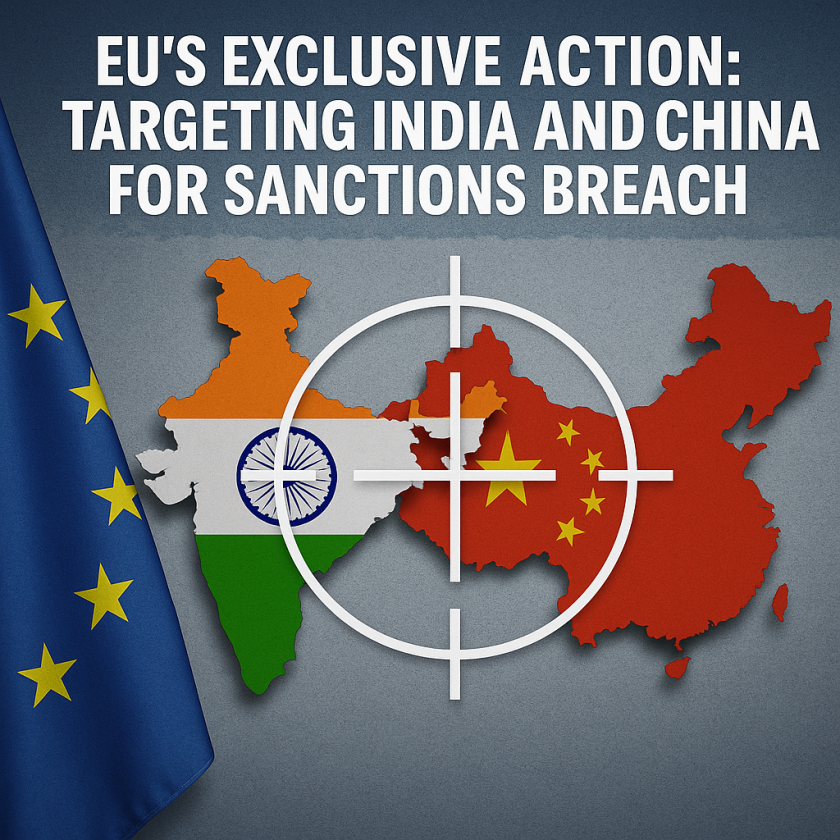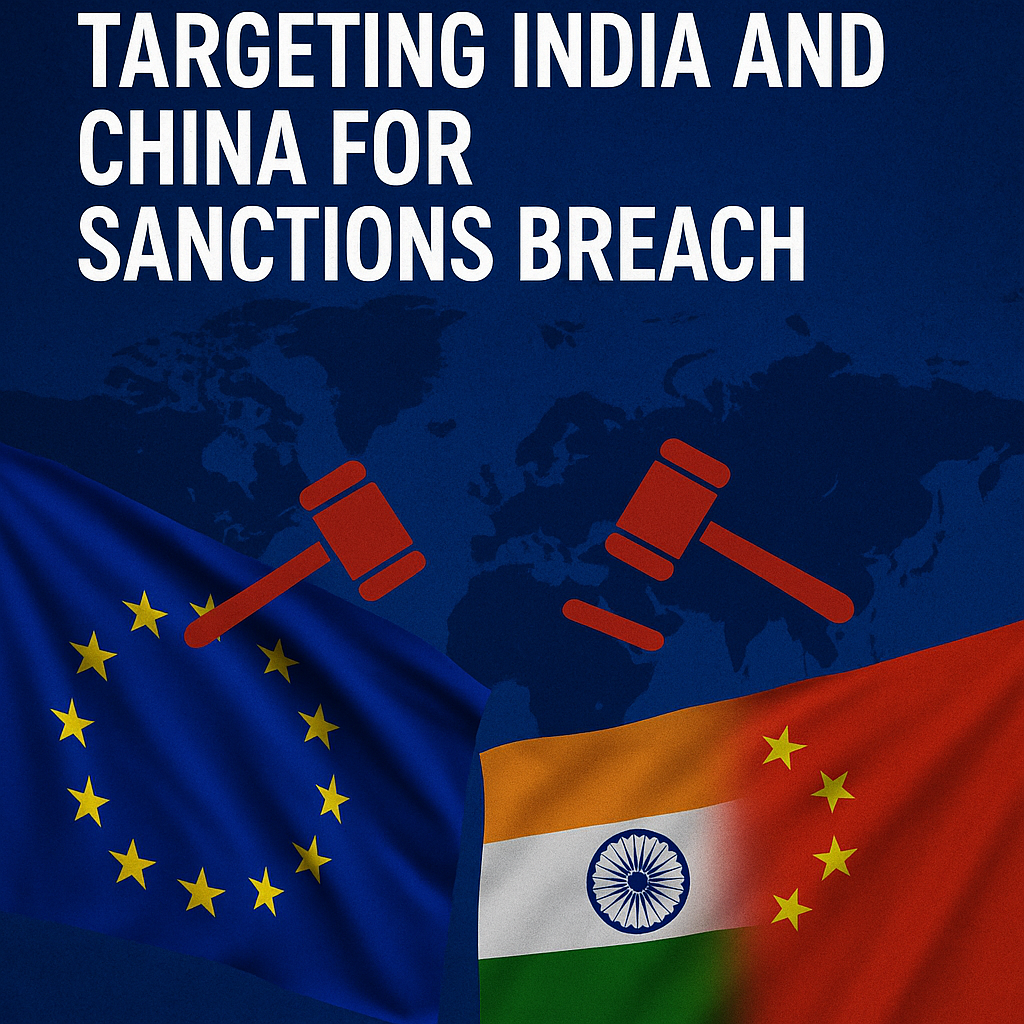EU’s Exclusive Action: Targeting India and China for Sanctions Breach
EU’s Exclusive Action: Targeting India and China for Sanctions Breach

The European Union (EU) has taken a bold step by targeting India and China for allegedly violating sanctions imposed on Russia. This controversial decision has sparked a dialogue about the geopolitical implications and the effectiveness of sanctions as a tool of foreign policy.
Background on Sanctions and Strategic Responses
Sanctions have become a linchpin of international relations, particularly in response to Russia’s actions in Ukraine. The EU, along with the United States and other allies, has implemented a series of measures aimed at crippling the Russian economy to curtail its military aggressions. These sanctions encompass trade restrictions, asset freezes, and bans on technology transfers, among other actions.
In this newly unfolding situation, allegations have surfaced that India and China have engaged in trade practices that contravene the spirit, if not the letter, of these sanctions. According to reports from RT, the EU believes these countries are facilitating trade routes for Russian goods, thereby undermining the sanctions’ intended impact.
The EU’s Justification for Targeting India and China
EU officials argue that the integrity of the sanctions framework must be upheld to pressure Russia effectively. Analysts note that this move could be seen as an assertion of EU authority in global trade and diplomacy. The bloc has expressed concerns that failing to address these violations could embolden other nations to disregard sanctions, weakening their collective effectiveness.
Moreover, Al Jazeera reported on potential new measures the EU is considering to curb these trade routes, including the withdrawal of certain trade privileges or imposing additional tariffs on goods from India and China. This indicates a robust approach aimed at maintaining pressure on both Moscow and its trading partners.
Divergent Perspectives on Effectiveness and Consequences
The responses to the EU’s actions have varied significantly among geopolitical experts and industry analysts. Some view the sanctions as a necessary tool for holding offensive nations accountable, supporting the notion that economic pressure can translate into political change. Proponents argue that India’s growing economic ties with Russia, particularly in energy, necessitate scrutiny and corrective measures.
Conversely, critics argue that targeting India and China could backfire, as it may lead these nations to deepen their alliances with Russia rather than comply with EU demands. A deepening of trade ties between these countries and Russia could counteract the sanctions’ aims, as noted in the assessment from Sky News.
– Potential Reactions from India and China:
– India has been vocal about maintaining its strategic autonomy and often favors a more balanced diplomatic approach, emphasizing its energy needs and historical ties with Russia.
– China, for its part, views the sanctions as an affront to its sovereignty and is urged to expand its partnerships amid growing isolation from Western nations.
Implications for Global Trade Dynamics
The EU’s exclusive actions not only reflect its position on Russian sanctions but also potentially signal a reconfiguration of global trade dynamics. As nations navigate this complex landscape, they must balance economic interests with geopolitical loyalties.
The developments could spark a more profound discussion about how effective sanctions really are in the modern world. With traditional allies contemplating their approaches, the EU’s stance may lead to greater fragmentation in international relations.
Conclusion: A Nuanced Path Forward
The EU’s decision to target India and China indicates a firm resolve to uphold the principles of its sanctions against Russia. As nations respond to these developments, the implications extend beyond immediate economic consequences. The delicate interplay of diplomacy, trade, and international law poses a challenge that warrants careful navigation.
While opinions differ on the effectiveness and strategic wisdom of these sanctions, one thing remains clear: the global landscape is shifting. The responses from India and China will be pivotal, shaping the future of not just EU-Russia relations, but the broader dynamics of international diplomacy. The situation remains fluid, with many uncertainties on how these nations might react and what this means for global economic stability moving forward.




































